ARCS Foundation – Phoenix Chapter
Congratulations to our NAU ARCS Foundation Scholars!
To learn more, please visit the ARCS Foundation – Phoenix Chapter.
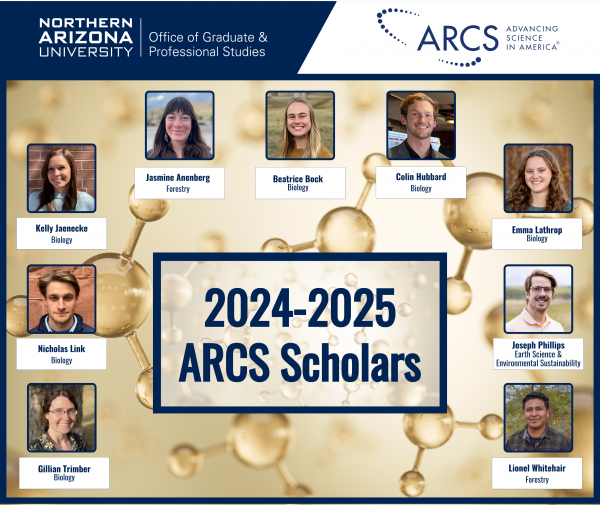
Our Recipients
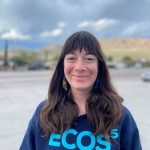
Jasmine Anenberg
Forest Science Ph.D.
Haga Family Memorial Scholar
Jasmine Anenberg is a Ph.D. student at NAU in the School of Forestry. Born and raised in the San Francisco Bay Area, her passion for the cultural and biological diversity there led her to a BA in Geography and Natural Resource Management from San Francisco State University. Jasmine has worked in ecological restoration for over a decade, and she currently exploring how to use biocrust as an innovative tool for ecological restoration from the soil up. She is working to understand the functional ecology of biocrust, as well as develop ways to successfully cultivate and apply it in restoration settings.
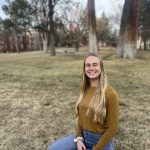
Bea Bock
Biological Sciences Ph.D.
Windrow Endowment and Templin Endowment Scholar
After graduating from Vanderbilt University with a bachelor’s degree in Earth and Environmental Sciences, Beatrice came to Flagstaff, Arizona to study the complex relationships between plants and fungi. Together, they form symbioses where the fungi can improve the health of plants. One of her recent experiments shows how a certain fungus improves the growth of sorghum, an important crop. She is interested in pursuing research that reveals how to use fungi to improve agricultural production and forest functioning.
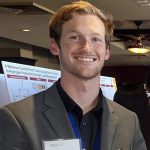
Colin Hubbard
Biological Sciences Ph.D.
Van Denburgh Scholar
Colin is currently a 4th year Ph.D. student who received his Bachelor’s in Exercise Science at NAU in the spring of 2020. He began his Ph.D. the following fall where he studies various aspects of respiratory physiology. His previous work included investigating respiratory muscle function following a fatiguing task. Specifically, studying how inspiratory muscles are negatively impacted by a task that reduces pressure generation of the expiratory muscles (and vice versa). His dissertation work extends to study the fatigability of the respiratory muscles following a maximal breath-hold in divers as well as structural changes in their chest wall compliance.

Kelly Jaenecke
Biological Sciences Ph.D.
Van Denburgh Scholar
Kelly Jaenecke received a Bachelor of Science from the SUNY College of Environmental Science and Forestry. Her Ph.D. research focuses on the conservation of native ecosystems by investigating the impacts of invasive species and habitat loss on vulnerable populations. She currently studies the diets of native forest birds on Hawaiʻi Island to better understand food availability and competition in areas impacted by Rapid ʻŌhiʻa Death, a fungal pathogen that causes widespread tree death in forest bird habitat.
 Nicholas Link
Nicholas Link
Biological Sciences Ph.D.
ARCS Foundation Scholar
Nick Link is a second-year PhD student studying ecosystem and disturbance ecology across Alaska and the Yukon. Nick’s work on fuel breaks seeks to provide land managers with information on the long-term impacts of fuel break installation, which can inform how they are designed and how often they are retreated. The project’s aim is to help land managers develop strategies that can promote the growth of less-flammable deciduous trees after fuel breaks are installed. Deciduous trees may act as a living fuel break on the landscape, requiring no retreatment, and offering an entire suite of other ecosystem services
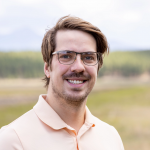
Joseph Phillips
Earth Science & Environmental Sustainability Ph.D.
Lawson Scholar
Joseph earned his Bachelor’s in Science from New Mexico Tech in 2017 and currently as a PhD Candidate at Northern Arizona University uses seismology to investigate Earth’s tectonics within ocean basins from the seafloor to the core-mantle boundary. His research provides a unique view into Earth’s dynamic processes that inevitably lead to devastating earthquakes, which have primarily only been documented on land. Joseph also researches with Sandia National Laboratories on the geologic structure related to earthquake sources for the purpose of nuclear discrimination and nonproliferation. Building geologic model knowledge about the shallow subsurface helps decipher the difference in seismic signals between earthquakes and explosions.
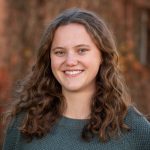
Emma Lathrop
Biological Sciences Ph.D.
Horejsi Scholar
Emma Lathrop graduated with a Bachelor’s degree in Environmental Biology and a minor in mathematics from Montana State University. Afterward, she spent three years working at Los Alamos National Laboratory, primarily focused on a project aimed at improving the representation of Arctic processes in global climate models. Her work often took her to Nome, Alaska and she fell in love with the isolation and beauty of the northern latitudes. Driven by a desire to protect the remote and delicate tundra landscapes, she studies the effects of permafrost thaw in the Arctic at Northern Arizona University in the Biology department and the Center for Ecosystem Science and Society. Emma focuses on understanding how soil carbon pools change when soils thaw gradually, versus when landscapes experience rapid ground collapse following permafrost thaw. Improving understanding of how Arctic carbon cycling changes in a warmer world has consequences for the global carbon cycle.
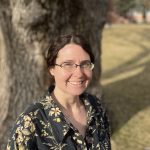
Gillian Trimber
Biological Sciences Ph.D.
ARCS Foundation Scholar
Gillian Trimber completed her undergraduate work at Cornell University, where she received Bachelor of Science degrees in Plant Science as well as Viticulture and Enology. She received her MS degree from Northern Arizona University in 2023, and is now pursuing a PhD at NAU in Biological Sciences. Her research centers on the ways in which plant-fungal interactions change after wildfire and other disturbances, including the introduction of invasive species. She is currently focusing on developing post-fire restoration techniques for woodland ecosystems that incorporate re-introduction of native beneficial mycorrhizal fungi to improve tree seedling survival.
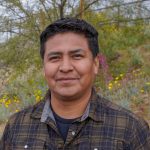
Lionel Whitehair
Forestry Ph.D.
Sandra and Ralph Matteucci Endowment Scholar
Lionel obtained a B.S. in Forestry from Northern Arizona University. His current research focuses on restoring pinyon woodlands on the Navajo Nation, an area often overlooked in natural resource studies. His research assesses the effectiveness of thinning treatments in reducing extreme fire behavior, with the goal of restoring ecosystems, respecting Indigenous culture, and promoting sustainable resource management. Conducted in collaboration with Diné College, Lionel’s work provides essential insights into woodland ecosystem dynamics and enhances community resilience within the Navajo Nation.
